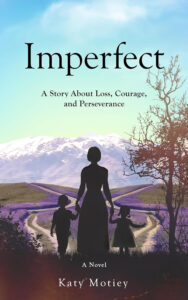Vida Shamsa is the epitome of resilence, courage, resourcefulness, and motherhood. Vida and her husband Kamran lived in America during the early years of their marriage. Kamran was diagnosed with cancer as she was pregnant with their second child. He eventually beats the cancer and continues with his profession as a doctor. Eventually they had to return to Iran, where they originated from, at Kamran’s persistence.
Vida lost her husband after their move to Iran. Her world was shattered, and that was the beginning of her struggles. Vida is stunned by the patriarchy in Iran, and she was liberal, so it was even more shocking. The laws of Iran did not permit the mothers to have full custody of their children. It soon becomes a legal battle with her in-laws to get her children to live with her. Vida has to navigate life as a widow: the betrayals, grief, new identity, employment, and family bonds.
The story is set during Iran’s political conflicts in the 1970s. There was much unrest during these times, and many people feared for their lives, especially expats. Vida will do everything to protect her children and secure their futures. The book portrays the struggles of mothers, especially in patriarchal societies.
Again, I’m reminded that a mother’s love is the strongest of all. I’m amazed at Vida; she is not afraid to speak up against oppression and isn’t deterred by the challenges that come with seeking freedom. The novel is enlightening, as I became familiar with some of the customs and traditions of Iran. It also exposed me to their laws and judicial system, and after comparing it with the present, I realized so much has changed over the years. Throughout the tough times, Vida had her family by her side to encourage and support her. I admired the relationship between she and her parents and her stepmother, as it was evident that they genuinely cared for her and they wanted the best for her. It’s disheartening that women have to prove themselves so much unless society shames them even though they don’t receive the same recognition and rewards as men.
Vida’s story is inspiring, and although I have never met her, I feel connected to her. I found myself cheering her on as I read on and I celebrated her wins, and even when she lost, I knew things would get better. The story was intense, and I couldn’t stop reading until the end. Imperfect by Katy Motiey is an unforgettable read; although the story has been fictionalized, the awe of Vida Shamsa still remains.


